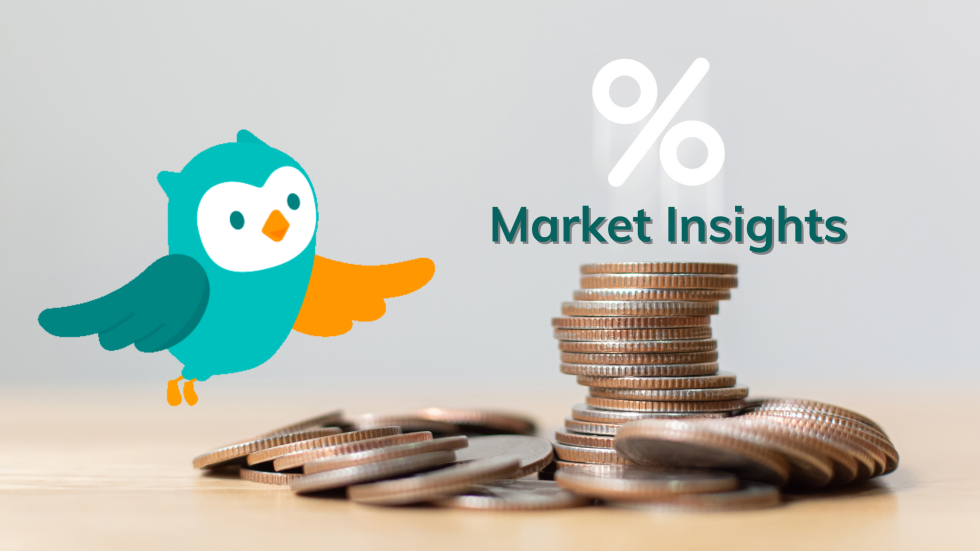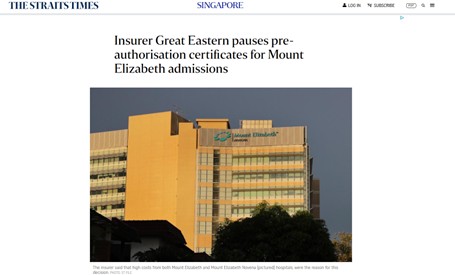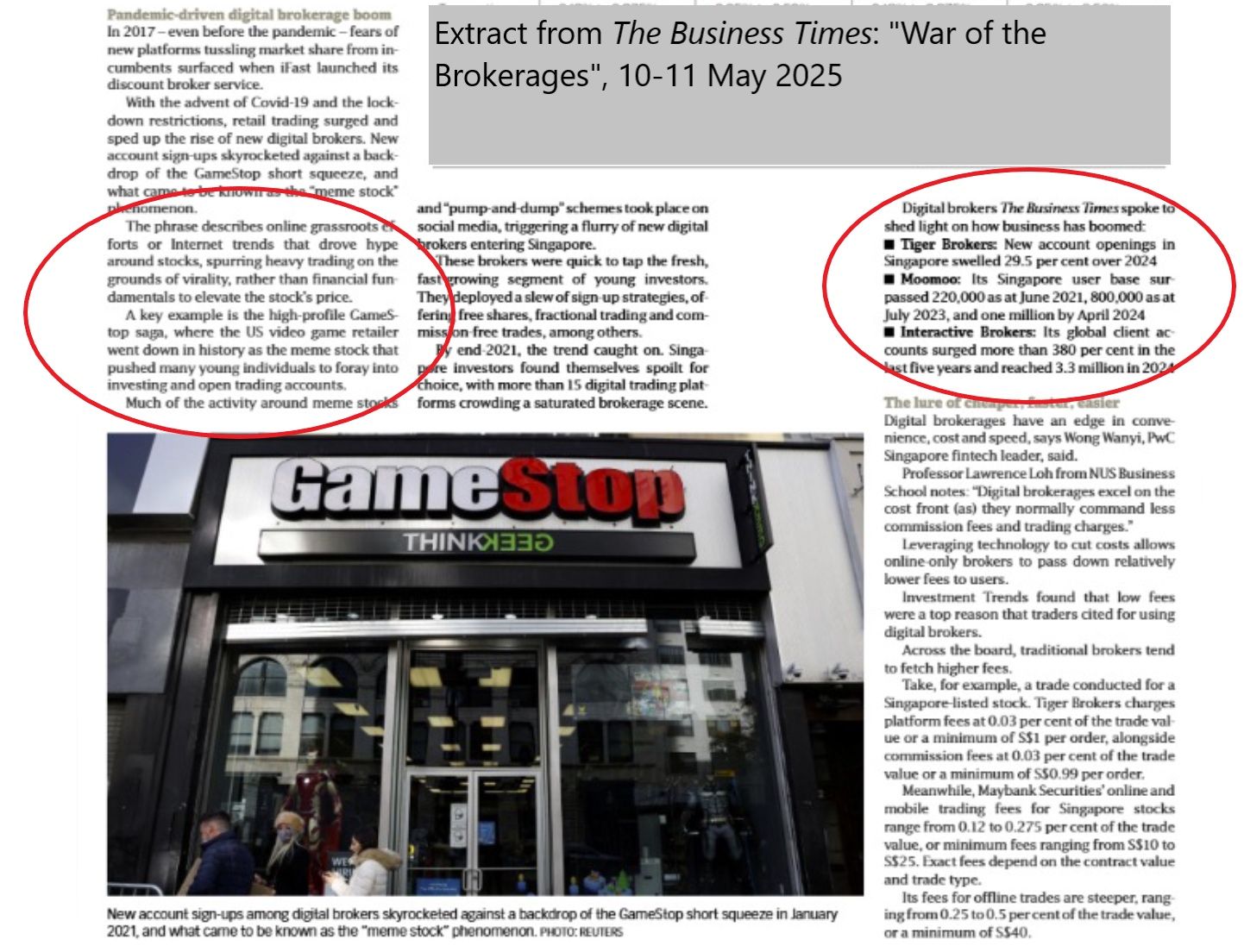Note: It was announced in November 2023 that MoneyOwl will be acquired by Temasek Trust to serve communities under a re-purposed model, and will move away from direct sale of financial products. The article is retained with original information relevant as at the date of the article only, and any mention of products or promotions is retained for reference purposes only.
______________
The equity market outlook may be challenging for investors to continue investing. However, our investment team shares why as investors, we need to set a plan, be flexible and benefit from the market situation.
(26 September 2022 – 30 September 2022)
As September ended, the year-to-date downturn of equities extended, with equities falling for the third quarter in a row. While last week’s losses were not as steep as those in the previous two weeks, major equity indexes continued declining, with the S&P 500 and MSCI World Index falling 2.91% and 2.45%, respectively. MoneyOwl’s 100% equity portfolio was relatively resilient, falling by only 1.76%.
In fixed income, the 10-year US Treasury bond yield rose modestly in what was otherwise an unusually volatile week in the bond market. The yield surged as high as 3.99% on Tuesday to the highest level in 14 years before ending the week at 3.80%. The global benchmark for fixed income assets, Bloomberg Barclays Global Aggregate Bond Index, was down 2.17% for the week.
“Life prepares you for investing and investing prepares you for life.”
With continual market declines as we come to the end of the third quarter of 2022, some investors may find it challenging to start a conversation about investing. However, connecting life principles to investment principles is a powerful way to ground abstract principles in reality and to connect over universal experiences and feelings. It can also help make sense of investment concepts often dismissed as overly complex by those who aren’t familiar with them.
Our lives are the cumulative result of the decisions we make every day. Likewise, in investing, the power of these decisions compounds over time. This is why it is crucial to identify a decision-making process that works for you in life and investing. This involves acknowledging that uncertainty can create stress and opportunity, planning for what might happen rather than trying to predict what will happen, cultivating flexibility and adaptability, harnessing the power of compounding, and accepting your limits. Embracing uncertainty by planning for the future can help you live life better now.
Uncertainty
Given life’s profound uncertainty, it is sometimes hard to feel like an optimist. Most of what happens in our lives are unpredictable, and it is impossible to forecast the future. But you can live your life fully without knowing what will happen. In addition, you can have a good investment experience without forecasting what the market will do, because you are not trying to guess which companies will succeed and when. Instead, you are investing in the ingenuity of people to solve problems and make their companies run better.
Planning
You do not have to predict, but you do have to plan. You can feel empowered by uncertainty instead of being beaten down by it. Without uncertainty, there would be no opportunity. Think about all the unexpected turns your life has taken and the possibilities those turns opened up. While you could not have predicted the outcomes of your decisions, you used available options to make the best decision at that time. The same is true of investing in markets. People shrink away from investing because of uncertainty, but life experience has given us the tools to deal with it. While you cannot control the markets, you can control how much risk you take. Moreover, you can choose to have an investment professional to help you make the best financial decisions so you can live sustainably.
Flexibility
While having a plan in life and investing is necessary, the road will be easier if you cultivate flexibility. Think about someone you know who has successfully navigated significant challenges. Were they rigid, or were they nimble?
Compounding
Consider the power of compounding if you need the motivation to stick to your plan and adapt accordingly. Beyond the financial benefits – although the market has returned an average of about 10% yearly over the past 100 years, the life equivalent of compound interest is wisdom. Learning from the past helps you make better decisions in the future, and those lessons build on one another over time.
Live Life
Once you have done your best, go easy on yourself. Learn from your disappointments, and enjoy your successes. It is not the decisions you make but how you make decisions. Approach other people with empathy. Investing, like life, is a process. If you have followed a solid plan to the best of your ability, you have put yourself in the best position to achieve success. Don’t ruin your state of mind by obsessing after the fact. Instead, focus on the long term, and stay invested.
UK’s Fragile Economy
The UK’s financial crisis is threatening to tip the economy into recession, with Prime Minister Liz Truss digging her heels in, defending the historically significant tax-cut package and describing it as the “right plan. The plan to implement tax cuts and spending increases funded by borrowing triggered further weakness for Britain’s currency. It also prompted a swift response from the UK’s central bank, which tried to stabilize credit markets by launching a bond-buying program.
PCE Inflation Rises
Despite the US Federal Reserve’s efforts to contain inflation, a monthly inflation metric that the Fed uses as its preferred gauge of price trends rose more than expected. Excluding volatile food and energy, consumer prices rose 4.9% in August from a year earlier, up from 4.7% the previous month as measured by the personal consumption expenditures price index.
Surging Euro Inflation
Rising energy costs fueled another spike in European inflation, with the eurozone reporting that its key inflation gauge rose at an annual 10.0% rate in September, up from 9.1% the previous month. Separately, Germany reported an even steeper increase, with inflation climbing to 10.9% from 8.8% the last month.
Russia Annexation
Russian leaders declared victory in a series of stage-managed, UN-condemned “referendums” as the Kremlin moved to annex a large chunk of occupied Ukrainian territory. There is also a growing exodus of Russians fleeing President Vladimir Putin’s mobilization order, creating turmoil at the borders with neighbouring states and stirring fears about potential instability. In addition, the European Union is considering adding shipping restrictions to its oil sanctions as the bloc continues to discuss the introduction of a price cap on Russian oil.
Read more Market Insights here.
Disclaimer: While every reasonable care is taken to ensure the accuracy of the information provided, no responsibility can be accepted for any loss or inconvenience caused by any error or omission. The information and opinions expressed herein are made in good faith and are based on sources believed to be reliable but no representation or warranty, express or implied, is made as to their accuracy, completeness or correctness. Expressions of opinions or estimates should neither be relied upon nor used in any way as an indication of the future performance of any financial products, as prices of assets and currencies may go down as well as up and past performance should not be taken as an indication of future performance. The author and publisher shall have no liability for any loss or expense whatsoever relating to investment decisions made by the reader.
Follow MoneyOwl on social media for more awesome content on investments, insurance, and financial planning!




